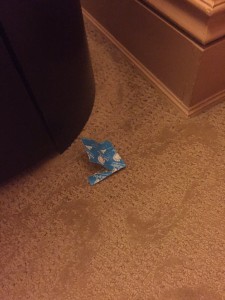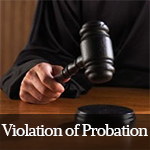
You Have the Right to Remain Silent Fool!
YOU HAVE THE RIGHT TO REMAIN SILENT | USE IT
Most people view the fifth amendment as a shelter or haven for individuals who have committed a crime. Invoking your right to remain silent is typically viewed as an admission to criminal conduct. After all, if you have nothing to hide in you have nothing to worry about speaking to the police. Right? You couldn’t be more wrong.
10 REASONS TO NEVER SPEAK TO THE POLICE
- If the police already have enough evidence to arrest you, they are going to arrest you no matter what you say. If they don’t have enough evidence, you will probably provide them with enough evidence to arrest you………. even if you are innocent.
- There is a reason the United States Supreme Court makes police officers warn you that you have a right to remain silent before they ask you questions. It is because speaking to the police is a bad idea nearly 100% of the time………….. even if you are innocent.
- The prosecution cannot introduce evidence at a trial concerning you exercising your right to remain silent. The prosecution will cherry pick your worst statements out of context and use them against you in court.
- There is no way it can help. I have seen thousands of people talk their way into getting arrested. I have seen one (1) client give a statement and not end up arrested.
- If you are guilty, or innocent, you may admit guilt with no benefit in return. If you admit guilt up front, you lose the ability to negotiate a more favorable plea.
- Even if you are innocent and only tell the truth, you will always give the police some information that can be used to arrest and convict you.
- Even if you are innocent, only tell the truth and say nothing incriminating, there is still a chance that you will be convicted if the police officers do not recall your statements with 100% accuracy.
- Even if you are innocent, only tell the truth and say nothing incriminating, there is still a chance that you will be convicted if the police officers do not recall their questions with 100% accuracy.
- Even if you are innocent, only tell the truth, say nothing incriminating and your statement is transcribed, audio or video recorded, you can still be convicted if the police have any evidence that any of the statements you made are false. Even the little white lies.
- There are over 10,000 pages of federal criminal statutes and thousands of pages of state statutes. There are in an infinite number of factual scenarios where speaking to the police freely might implicate you in some sort of crime that you did not even know existed.
After all that, remember, you have the right to remain silent. Exercise that right.
WHY WAS THE FIFTH AMENDMENT CREATED?
The Fifth Amendment was created to protect the innocent, not the guilty. You don’t have to take my word for it, you can take the word of Justice Frankfurter, former associate justice United States Supreme Court. “Too many, even those who should be better advised, view this privilege as a shelter for wrongdoers. They too readily assume that those who invoke it are either guilty of crime or commit perjury in claiming the privilege.” Ullmann v. United States, 350 U.S. 422, 426(1956). “The Fifth Amendment’s basic function[s] … is to protect innocent men … who otherwise might be ensnared by ambiguous circumstances. ” See Ohio v. Reiner, 532 U.S. 17, 20(2001).
You Have the right to remain silent. Use it. Refuse to speak with the police without an attorney present. I was admitted to the Florida Bar in 2004. Over the length of my career, I have personally had one (1) client that I allowed to speak to the police during the investigation stage. A colleague of mine has also allowed (1) client to speak to law enforcement during the investigation stage. Our 2 cases are the only 2 that I am aware of where speaking to law enforcement prior to the filing of charges helped the situation. Those were once in a career cases. I know that I’ll never see another like it.
SOURCES
Please note that I stumbled across this topic while doing legal research for a case. I saw a YouTube video by Regent University Law Professor James Duane which is posted above. It was very informative and I would like to generally site to his video as my source for much of the above information contained herein. Although it has always been my opinion, and almost every criminal defense attorney’s position, that you have a right to remain silent and you should use it.
For additional information, please contact us at:
The Law Offices of Michael A. Dye, PA, 1 East Broward Boulevard #700, Fort Lauderdale, FL 33301 (954)990-0525



